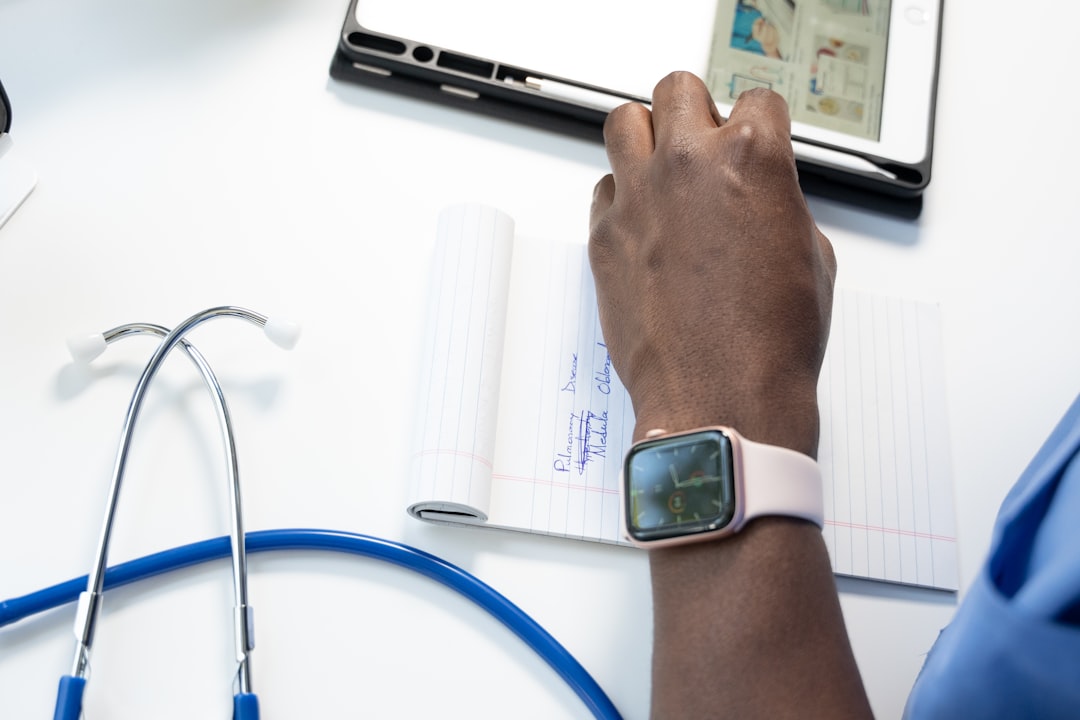Legal Framework and Ethical Standards
Doctor-patient confidentiality is a cornerstone of the medical profession, fostering trust and encouraging open communication between patients and healthcare providers. This principle ensures that personal health information shared with a doctor remains private, except under specific circumstances where disclosure is legally mandated or ethically justified. The legal framework and ethical standards governing breaches of this confidentiality are complex, balancing patient privacy with broader societal needs.
Legally, the concept of doctor-patient confidentiality is enshrined in various statutes and regulations. In many jurisdictions, laws such as the Health Insurance Portability and Accountability Act (HIPAA) in the United States provide robust protections for patient information. HIPAA imposes strict guidelines on healthcare providers regarding the handling, storage, and sharing of patient data. Breaches of this confidentiality can result in significant penalties, including fines and legal action. Similar legislative frameworks exist worldwide, each tailored to its unique legal system but generally aligned on the fundamental right to privacy in medical matters.
Ethically, the Hippocratic Oath-a pledge taken by doctors-emphasizes the importance of maintaining patient confidentiality. The oath underscores that respecting patient privacy is essential not only for individual dignity but also for maintaining public trust in the healthcare system. Ethical standards set forth by professional organizations like the American Medical Association (AMA) provide further guidance. These standards typically outline scenarios where breaching confidentiality may be ethically permissible or even required. For example, if a patient poses a clear risk to themselves or others, or if there is a legal obligation to report certain conditions to public health authorities.
However, real-world situations often present challenging dilemmas where legal mandates and ethical considerations might conflict or require careful interpretation. Consider a case where a patient reveals they have a contagious disease but insists on keeping it confidential. Legally, there may be requirements to report such cases to prevent an outbreak; ethically, the physician must weigh this against their duty to respect patient autonomy and privacy.
Moreover, advances in technology have added layers of complexity to maintaining confidentiality. The digitalization of health records has improved access to care but also increased vulnerability to data breaches. Healthcare providers must now navigate both traditional ethical considerations and new technological risks.
In conclusion, doctor-patient confidentiality breaches are governed by an intricate interplay of legal frameworks and ethical standards designed to protect patient privacy while addressing broader societal concerns. Legal statutes provide clear boundaries and repercussions for breaches, while ethical guidelines offer nuanced perspectives on when breaking confidentiality might be justified or necessary. Navigating these issues requires healthcare professionals to exercise judgment that respects both legal obligations and ethical principles-a task that becomes increasingly complex in our interconnected digital age.
Common Types of Confidentiality Breaches
Doctor-patient confidentiality is a cornerstone of the medical profession, ensuring that patients can trust their healthcare providers with sensitive personal information. However, breaches in this confidentiality do occur, and they can have serious repercussions for both patients and healthcare providers. Understanding the common types of confidentiality breaches can help in identifying ways to prevent them.
One of the most prevalent types of breaches involves unintentional disclosure. This often happens when healthcare professionals discuss patient information in public places, such as hospital corridors, elevators, or even social settings outside of work. Even if no names are mentioned, details about a patient's condition or treatment can inadvertently reveal their identity. This kind of breach is usually a result of carelessness rather than malicious intent but can nonetheless erode patient trust.
Another common type involves electronic data breaches. With the increasing reliance on digital records and communication within the healthcare industry, the risk of unauthorized access to patient information has grown significantly. Hackers may target medical databases to steal sensitive information for financial gain or other malicious purposes. Additionally, improperly secured electronic devices like laptops and smartphones used by healthcare providers can also be vulnerable to theft or unauthorized access.
Employee misconduct is another significant source of confidentiality breaches. This includes situations where healthcare workers intentionally access patient records without legitimate reasons or share confidential information with unauthorized individuals. Such actions could stem from curiosity, personal relationships with the patient, or malicious intent to harm either the patient or someone else connected to them.
Administrative errors represent yet another category of breaches. These might occur when paper files are misplaced, sent to the wrong address, or improperly disposed of without being shredded first. Similarly, emails containing sensitive information might accidentally be sent to incorrect recipients due to typographical errors in email addresses.
Lastly, insufficient training on privacy policies and practices can lead to inadvertent breaches by staff members who may not fully understand their responsibilities regarding patient confidentiality. Regular training sessions on best practices for handling patient information are crucial for minimizing these risks.
In conclusion, doctor-patient confidentiality breaches can arise from various sources including unintentional disclosures in public places, electronic data vulnerabilities, employee misconduct, administrative errors, and insufficient training. Each type represents a different facet of how confidential information can be compromised but understanding these common types allows healthcare institutions to implement more effective measures for safeguarding patient privacy. Ultimately, maintaining strict confidentiality is essential for preserving trust between doctors and patients-a fundamental aspect necessary for effective medical care.
Consequences of Breaching Confidentiality for Patients
The trust between a patient and a doctor is not merely a cornerstone of medical practice; it is the very foundation upon which effective healthcare is built. Among the many ethical principles that guide this relationship, confidentiality stands out as one of the most crucial. When patients share their personal and sometimes deeply sensitive information with their healthcare providers, they do so with the understanding that this information will be kept private. Breaching this confidentiality can have profound and far-reaching consequences for patients, impacting their emotional well-being, social relationships, and even their overall health outcomes.
One of the most immediate consequences of breaching patient confidentiality is the erosion of trust. Trust is fundamental to the doctor-patient relationship, forming the basis for open communication and effective treatment. When confidentiality is breached, patients may feel betrayed and less likely to disclose important information in future consultations. This withholding of information can lead to misdiagnoses or inadequate treatment plans, ultimately compromising the quality of care received.
Beyond the direct impact on the doctor-patient relationship, breaches of confidentiality can lead to significant emotional distress for patients. The knowledge that private details about one's health could become public can cause anxiety, fear, and embarrassment. For instance, if sensitive information about mental health issues or sexually transmitted infections were disclosed without consent, it could stigmatize the patient and lead to social ostracism or discrimination.
Moreover, breaches in confidentiality can have serious legal repercussions for both patients and healthcare providers. Patients may seek legal action against healthcare professionals who fail to protect their privacy adequately. Such legal battles are not only emotionally draining but also financially burdensome for all parties involved. Healthcare providers found guilty of breaching confidentiality may face professional sanctions, including loss of licensure, further diminishing their ability to provide care.
In some cases, breaches can also result in tangible harm beyond emotional distress or damaged reputations. Consider situations where confidential information is leaked in small communities where everyone knows each other; such leaks could potentially endanger a patient's safety if it involves sensitive issues like domestic violence or substance abuse.
Furthermore, there is a broader societal consequence to consider: widespread breaches erode public confidence in the healthcare system as a whole. If people begin to believe that their personal information cannot be safeguarded within medical institutions, they might avoid seeking necessary medical care altogether due to fear of exposure. This reluctance exacerbates public health issues as untreated conditions spread more widely within populations.
In conclusion, breaching patient confidentiality has multi-faceted repercussions that extend far beyond any single incident's immediate fallout. It compromises trust between doctors and patients essential for effective medical care; it causes emotional distress; leads to potential legal actions; poses risks to physical safety; and even undermines public confidence in healthcare systems at large. Upholding confidentiality isn't just an ethical obligation-it's indispensable for safeguarding both individual well-being and broader public health interests.
Legal Repercussions for Healthcare Providers
Doctor-patient confidentiality is a cornerstone of the healthcare profession, fostering an environment where patients feel safe to share sensitive information essential for their treatment. Breaching this confidentiality can have severe legal repercussions for healthcare providers, affecting their careers and the trust placed in the medical field.
One of the primary legal consequences for breaching doctor-patient confidentiality is facing civil lawsuits. Patients whose confidentiality has been violated can sue for damages, claiming emotional distress, reputational harm, or other tangible losses resulting from the breach. These lawsuits can lead to substantial financial penalties and legal fees, creating a significant burden on healthcare providers.
In addition to civil liability, healthcare providers may also face disciplinary actions from medical boards and professional licensing bodies. These organizations have stringent codes of ethics and standards that practitioners must adhere to. A proven breach of patient confidentiality could result in suspension or revocation of medical licenses, effectively ending a provider's career. The loss of licensure not only impacts the individual provider but also diminishes the overall trust in the healthcare system.
Moreover, breaches of doctor-patient confidentiality can lead to criminal charges under certain jurisdictions' privacy laws such as HIPAA (Health Insurance Portability and Accountability Act) in the United States. HIPAA violations carry penalties ranging from fines to imprisonment depending on the severity and intent behind the breach. For instance, if a provider knowingly discloses protected health information without consent or proper authorization, they could face criminal prosecution.
The ripple effects of these legal repercussions extend beyond individual practitioners to entire healthcare institutions. Hospitals and clinics associated with providers who breach confidentiality may suffer damage to their reputation, leading to loss of patient trust and reduced patronage. This can result in financial losses and increased scrutiny from regulatory bodies.
Healthcare providers must therefore exercise utmost diligence in maintaining patient confidentiality. This includes adhering strictly to privacy protocols, undergoing regular training on data protection laws, and ensuring robust security measures are in place to safeguard patient information. By doing so, they not only protect themselves from legal consequences but also uphold the integrity and trust essential to effective medical care.
In conclusion, breaching doctor-patient confidentiality carries serious legal repercussions that can severely impact both individual healthcare providers and broader medical institutions. Civil lawsuits, professional disciplinary actions, criminal charges, and reputational damage are just some of the potential consequences faced by those who fail to honor this vital aspect of medical ethics. It is imperative for all involved in healthcare delivery to prioritize patient privacy rigorously to foster trust and ensure compliance with legal standards.
Preventative Measures and Best Practices
Doctor-patient confidentiality is a cornerstone of medical ethics and trust. It ensures that personal health information shared between a doctor and patient remains private, fostering a safe environment for honest communication. However, breaches in confidentiality can occur, often unintentionally but sometimes through careless or unethical practices. To protect this sacred trust, it is essential to implement preventative measures and best practices.
Preventative measures begin with education. Both healthcare providers and administrative staff must undergo thorough training on the importance of confidentiality and the legal ramifications of breaches. This includes understanding the Health Insurance Portability and Accountability Act (HIPAA) regulations, which set national standards for protecting sensitive patient information. Regular refresher courses should be mandatory to keep everyone updated on the latest protocols and potential risks.
Another critical preventative measure is the implementation of robust security systems for electronic health records (EHR). With the digitization of medical records, cybersecurity becomes paramount. Hospitals and clinics must invest in advanced encryption technologies to protect data from unauthorized access or cyber-attacks. Access controls should be stringent, ensuring that only authorized personnel can view patient information relevant to their role.
Best practices also emphasize physical security measures within healthcare facilities. Simple actions like locking file cabinets containing sensitive documents or ensuring that computer screens are not visible to unauthorized individuals can significantly reduce the risk of breaches. Additionally, conversations regarding patient care should be conducted in private settings rather than public areas where they could be overheard.
Communication plays a pivotal role in maintaining confidentiality. Doctors should clearly explain to patients how their information will be used and seek consent before sharing any details with third parties unless required by law. Patients should feel empowered to ask questions about who has access to their records and under what circumstances.
Regular audits are another best practice that helps maintain high standards of confidentiality. Routine checks can identify potential vulnerabilities in how patient information is handled, stored, or transmitted within an organization. Any discovered weaknesses should lead to immediate corrective actions.
Lastly, fostering a culture of accountability within healthcare settings is crucial. Staff members must understand that breaches of confidentiality are taken seriously and result in disciplinary action if necessary. Encouraging employees to report any suspicious activities without fear of retribution can help identify problems before they escalate into significant breaches.
In conclusion, doctor-patient confidentiality is vital for effective healthcare delivery. By adopting comprehensive preventative measures such as education, secure EHR systems, physical safeguards, clear communication protocols, regular audits, and promoting a culture of accountability, we can significantly reduce the risk of breaches. These efforts collectively ensure that patients continue to trust their healthcare providers with their most sensitive information.
Case Studies Illustrating Confidentiality Breaches
Doctor-patient confidentiality is a foundational element of medical ethics, ensuring that personal and sensitive information shared by patients during their treatment is protected and kept private. However, breaches of this confidentiality can have serious repercussions for both the patient and the healthcare provider. Examining case studies of such breaches can illuminate the potential consequences and underscore the importance of maintaining strict confidentiality standards.
One notable case involved a celebrity who was admitted to a well-known hospital for treatment. A staff member, intrigued by the patient's fame, accessed her medical records without authorization and leaked details to the media. This breach not only violated the patient's privacy but also led to significant public embarrassment and distress. The hospital faced severe backlash, legal action from the patient, and damage to its reputation. This incident highlighted how curiosity or personal interest can lead to unethical behavior with far-reaching impacts.
Another case occurred in a small-town clinic where a nurse inadvertently disclosed a patient's HIV status to his employer during a casual conversation at a community event. Unaware that such information would be shared beyond her professional environment, she failed to consider the implications of her actions. The patient faced discrimination at work, which ultimately led to job loss and social ostracization within his close-knit community. This situation emphasizes how even seemingly harmless discussions outside clinical settings can result in devastating outcomes for patients.
A third example involves digital security lapses in an era where electronic health records (EHR) are becoming commonplace. A large healthcare network experienced a data breach due to inadequate cybersecurity measures, exposing thousands of patient records containing sensitive information like medical histories and social security numbers. Patients suffered identity theft, financial loss, and anxiety over their compromised personal data. The healthcare provider had to invest heavily in rectifying security flaws while also compensating affected individuals through costly settlements.
These case studies illustrate various scenarios where breaches in doctor-patient confidentiality occurred-whether through deliberate actions, inadvertent disclosures, or technological vulnerabilities. They collectively demonstrate that maintaining confidentiality is not merely about adhering to ethical codes but about protecting patients from harm that can manifest as emotional distress, discrimination, financial loss, or public humiliation.
Healthcare providers must understand that trust is integral to their relationship with patients. Comprehensive training on confidentiality protocols should be mandatory for all staff members, reinforcing the significance of safeguarding patient information across all interactions-both within clinical environments and beyond.
Moreover, robust cybersecurity measures must be implemented rigorously as reliance on digital systems increases. Regular audits and updates are essential to ensure that any potential weaknesses are identified and addressed promptly.
In conclusion, breaches of doctor-patient confidentiality can have profound negative effects on patients' lives while tarnishing healthcare institutions' credibility. Through diligent practice management, education on ethical standards, and strengthened digital safeguards, it is possible to uphold the sanctity of this crucial aspect of medical care.
Damages in medical malpractice cases





